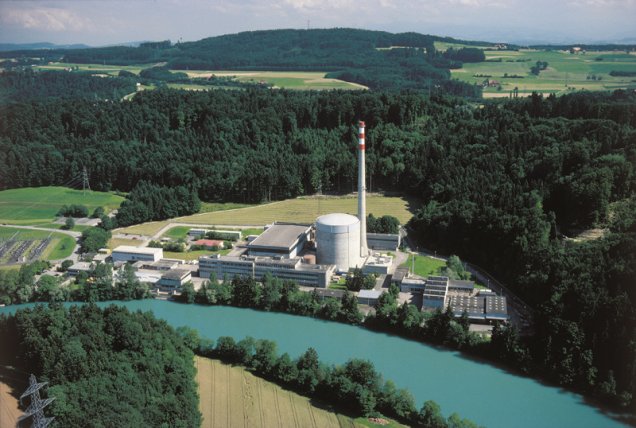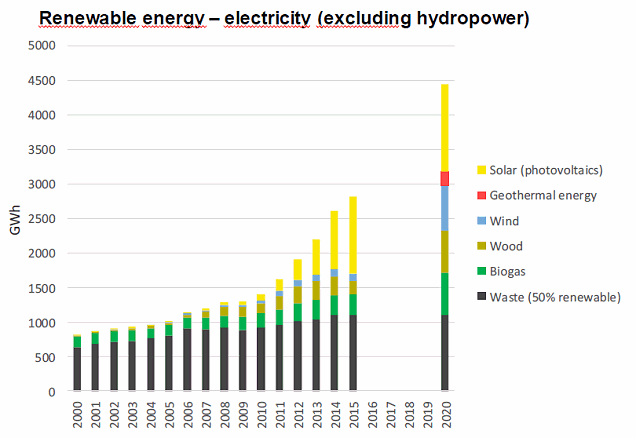
Yes to more renewables, no to nuclear power | Image: BKW FMB Energie AG, CC BY-SA 3.0, Link
Swiss voters have endorsed Energy Strategy 2050, a government plan that will see renewables including wind and solar power beefed up and nuclear power phased out in the country.
On the weekend, just over 58 percent of those who cast their ballot in a related referendum gave their government the nod to proceed with the ambitious plan.
Currently, wind and solar power make up less than 5% of Switzerland’s electricity production, with hydro contributing 60%.
Under Energy Strategy 2050, non-hydro renewables electricity production would rise to at least 4,400 GWh in 2020 and 11,400 GWh in 2035. Hydropower would contribute 37,400 GWh in 2035

Energy Strategy 2050 – Switzerland
While the initiative would see no new general licences for nuclear power plants issued, there will not be a ban on nuclear technology; with existing plants to be permitted to continue operating for as long as their safety is guaranteed.
There are four nuclear power plants in Switzerland with a total of five operational reactors that collectively generate 35% of the country’s electricity output. The first plant to shut down (Mühleberg – pictured above) is scheduled to do so in 2019. The “newest” reactor in Switzerland, at the Leibstadt Nuclear Power Plant, was commissioned in 1984 – 33 years ago.
The renewable energy boost will be funded by 480 million francs (approximately AUD $660 million) annually, raised from a “use of network surcharge” applied to all electricity users in the country.
The lead-up to the referendum wasn’t without controversy; with both sides claiming foul play. However, a clean, safe and renewable energy future won the day.
“With a clear “yes” to the Energy Strategy 2050, the voting population has set the course and paved the way for a future that builds on sustainability, renewable energies and energy efficiency,” said the Social Democrats (translated).
“Today’s decision is good for the climate, the environment, our jobs, the Swiss economy and the whole population.”
With regard to energy efficiency, the plan sets goals of a 3% per capita electricity consumption reduction in 2020 and 13% in 2035; based on a 2000 baseline.
There will also be more stringent emission regulations for cars, with a reduction to 95g CO2/km by the end of 2020. For utility vehicles and light semi-trailers, an extension of emission regulations would see a reduction to 147g CO2/km by the end of 2020.
The English version of the Swiss Government’s Energy Strategy 2050 can be viewed here (PDF).

 RSS - Posts
RSS - Posts



Speak Your Mind